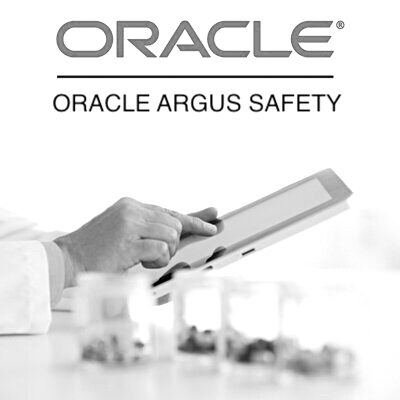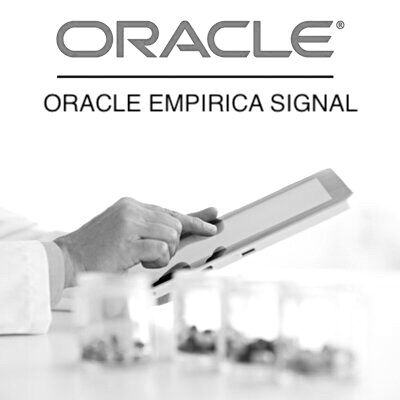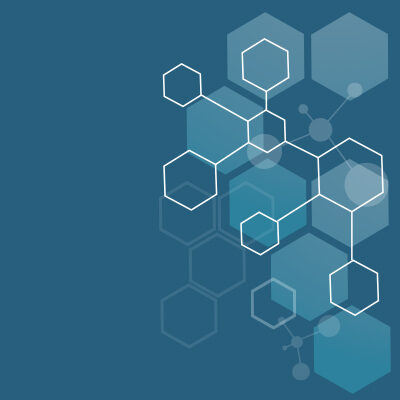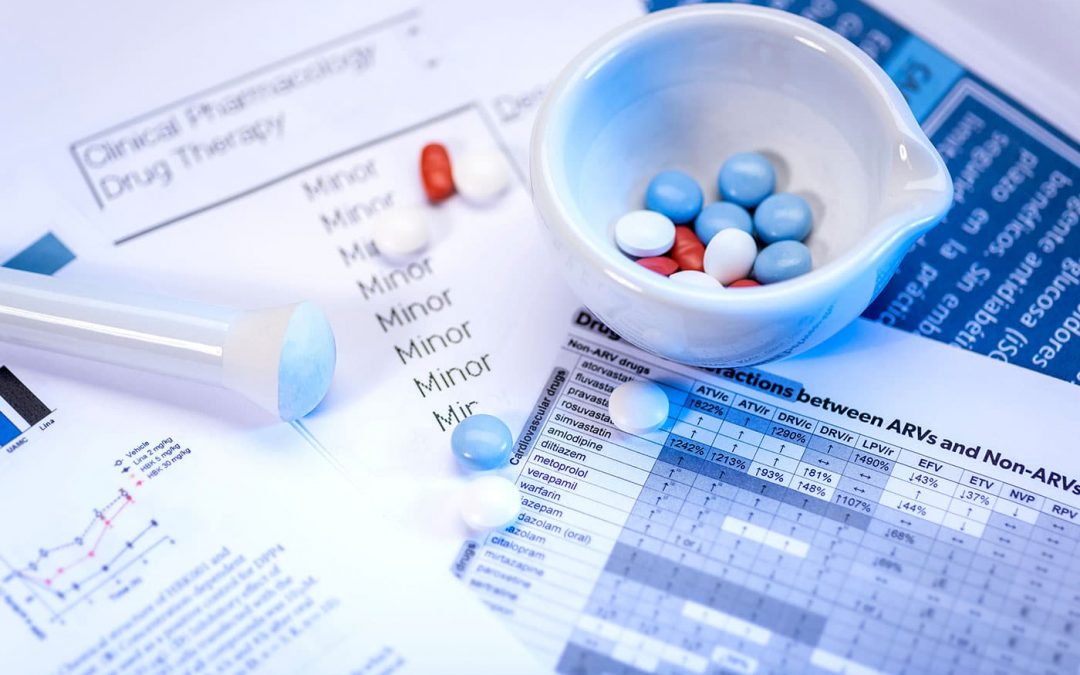In this post we shall be discussing about some of the common Software used in Pharmacovigilance for the management and reporting of Adverse Events.
Table of Contents
- Introduction to Pharmacovigilance
- Software used in Pharmacovigilance
- 1. Oracle Argus Safety
- 2. ARISg
- 3. Oracle AERS
- 4. PvNET
- 5. repClinical
- You may be interested in…
- Oracle Argus Safety Essentials
- Oracle Argus Safety Essentials + Console
- Oracle Argus Safety – Live Online
- Oracle Argus Safety + Console – Live Online
- Oracle Empirica Signal
- Oracle Empirica Signal – Live Online
- Diploma in Pharmacovigilance
- Argus Safety – Business Configuration and Administration
Introduction to Pharmacovigilance
Pharmacovigilance is the pharmacological science relating to the detection, assessment, understanding and prevention of adverse effects, particularly long term and short term side effects of medicines. Generally speaking Pharmacovigilance is the science of collecting, monitoring, researching, assessing and evaluating information from healthcare providers and patients on the adverse effects of medications, biological products, herbalism and traditional medicines with a view to:
- Identifying new information about hazards associated with medicines
- Preventing harm to the patients
Pharmacovigilance starts from the clinical stage and continues throughout the product life cycle of the drug, mainly divided as pharmacovigilance during pre-marketing (that is clinical phase) and post-marketing. The process of collection of such information about a drug begins in Phase I of the clinical trial, before approval of the drug, and continues even after approval; several post-market safety studies are conducted, with many made mandatory by drug regulatory agencies around the world.
Pharmacovigilance is particularly concerned with adverse drug reactions, or ADRs, which are officially described as:
“A response to a drug which is noxious and unintended, and which occurs as doses normally used…for the prophylaxis, diagnosis, of therapy of disease, or for the modification of physiological function.”
Pharmacovigilance is gaining importance for doctors and scientists as the number of stories in the mass media of drug recalls increases. Because clinical trials involve several thousand patients at most; less common side effects and ADRs are often unknown at the time a drug enters the market. Even very severe ADRs are often undetected because study populations are small. Post marketing surveillance uses tools such as data mining of spontaneous reporting systems and patient registries, and investigation of case reports to identify the relationship between drugs and ADRs.
Software used in Pharmacovigilance
Let’s take a look at some software used in Pharmacovigilance for the management and reporting of Adverse events.
Some software’s used in pharmacovigilance are:
- Oracle Argus Safety
- ArisG
- Oracle Adverse Event Reporting System (AERS)
- ClinTrace
- PvNET
- repClinical
- Vigilanz Dynamic Monitoring System
- WebVDME Pharmacovigilance Signal detection and Signal management software
- PV works
We shall discuss some most commonly used software in Pharmacovigilance as we go further in this post. Firstly let us discuss in detail about the Oracle Argus Safety software, which is the de-facto standard for management of drug safety data used in the industry today.
1. Oracle Argus Safety
Companies are increasingly shifting their focus to a more holistic view of product safety beginning in clinical development and continuing through post-marketing surveillance. Oracle Argus Safety is a comprehensive platform designed specifically to address the life science industry’s complex pharmacovigilance requirements. Argus Safety’s advanced database helps ensure global regulatory compliance, enables sound safety decisions and integrates safety and risk management functions.
With Oracle Argus Safety companies can:
- Ensure global regulatory compliance
- Make faster, science based safety decisions
- Integrate safety and risk management
- Lower the cost of Pharmacovigilance
Now lets talk about how Oracle Argus Safety is able to achieve the above:
Oracle Argus Safety – Ensures Global Regulatory compliance
Life science organisations must ensure that they are compliant with global regulations and guidelines, including those of EMEA, FDA, ICH and a myriad of national authorities. Extensive license partnerships, as well as outsourcing of some functions, complicate the scenario and the industry is finding it increasingly challenging to manage its world-wide reporting obligations. Companies depend on Argus Safety to help manage their regulatory compliance requirements in a timely and proactive manner.
Managers and executives can obtain visibility into reporting metrics and compliance by leveraging Argus Safety’s advanced reportability functionalities, such as comprehensive dashboards and metrics. In addition Argus Safety’s flexible configuration can model virtually any business process, supporting case management and reporting compliance internally as well as across license partner networks.
Argus Safety supports reporting compliance via a comprehensive and robust reporting engine that allows users to configure specific rules to match regulatory requirements. When combined with advanced automation features such as “Auto/Force distribute” and “Auto-Submit”, it enables full compliance and can lower the cost of regulatory reporting.
Oracle Argus Safety – Offers Better Data Insights and Faster decision making
Argus safety has been developed with inputs from leading life science companies and industry thought leaders with a focus on efficient and effective safety management.
The system is designed for fast safety data entry.Advanced functionality such as dynamic workflows, wordlist management, company-defined reporting rules and extensive automation are incorporated to ensure maximum case processing efficiency.
The system can be easily queries by end users without requiring SQL or support of IT departments. Thus, safety data is readily accessible for timely review and reporting. Other modules can also be fully integrated with Argus Safety, providing the ability to readily reconcile SAEs from clinical trials or efficiently manage periodic reports.
Argus Safety’s focus of business process efficiency allows pharmacovigilance departments to focus drug’s clinical effectiveness at lower overall cost. It provides complete insight into drug’s safety profile necessary to let executives make timely, science-based decisions on their products and portfolios.
Oracle Argus Safety – Integrates Safety and Risk Management
Pharmacovigilance departments are struggling with increasing case volumes, disparate data sources and complex business partnerships, challenging their ability to analyze and understand the safety data. The industry is struggling to maintain process efficiencies while managing product risk profiles in real time.
Argus Safety is a complete platform designed to address the industry’s end-to-end safety and risk management needs. it includes a comprehensive tool set for expedited and periodic reporting, capability for clinical trial SAE reconciliation and partner Adverse Event management.
Argus Safety has native risk management capabilities to address regulatory requirements and manage a product’s benefit:risk profile, including reporting automation using advanced conditions, documentation storage, collection of information for advanced visualisation and for tracking pregnancy registries. In addition, it can be seamlessly integrated with signal detection and management systems to proactively mine safety data. Companies can leverage the Argus Safety suite to ensure proactive approach to managing safety, from clinical development to post marketing.
Oracle Argus Safety – Industry Proven and Accepted
Argus Safety has been used for over a decade at some of the industry’s leading companies, including global pharmaceutical, Biotech, CRO and medical device manufacturers. It is continuously enhanced through a defined and planned product roadmap.
Oracle Argus Safety – Key Features and Benefits
Oracle Argus Safety has the following features:
- Origination of cases via case entry screens
- Tracking of local data items
- Support for e-signatures
- Duplicate search capabilities
- Local labelling decisions made against local data sheet or license
- Case views provided to appropriate local affiliate
- Ability for several affiliates to simultaneously view and make local labelling calls against the same locked case
- Views of core documents and global protocols such as action items on a work list.
- Central staging area for reviewing submitted affiliate cases
- Electronic submission capabilities
- Querying and reporting cases received and submitted
- Audit Trails
The benefits of using Oracle Argus Safety include:
- Improve data safety with a single case management database
- Realise immediate ROI by streamlining and integrating affiliate business processes
- Increase worker productivity by eliminating redundant data entryReduce risk by allowing central safety group to accept or reject cases.
2. ARISg
ARISg is also one of the most used software in pharmacovigilance used by pharmaceutical companies.
It is used by more than 300 companies that maintain their critical drug safety data in ARISg worldwide. ARISg provides all the functionality required to manage adverse event reporting and adverse reaction requirements of different regulatory authorities around the world. It allows for all pharmacovigilance processes from case entry to automatic generation of submission ready adverse event (AE) reports including CIOMS 1, MedWatch 3500A and many more.
ARISg forms a core component of an integrated pharmacovigilance and risk management system, enabling companies to monitor their products and identify safety risks proactively. ARISg helps speed up the management of Adverse Drug reactions with the use of its configurable workflow and advanced automation features. Users can setup a system that meets their business process and standard operating procedure (SOP) requirements more efficiently by automating the routing of cases as defined in their workflow rules. As with all Aris Global products, ARISg is available on premise and on demand versions.
3. Oracle AERS
Biopharmaceuticals, vaccines, medical device companies and Contract Research Organisations (CROs) are constantly challenged with meeting time-critical regulatory requirements using limited resources. They must identify and mange safety events before they become issues, and they need to maintain strict compliance with evolving regulations. To manage critical business processes, they require clear visibility into their data.
Oracle AERS provides a single global solution with powerful automation and productivity tools to meet the challenges of managing your worldwide safety information. Oracle AERS supports the capture, management, reporting and analysis of serious adverse event and product compliance cases for all medical products including drugs, medical devices, vaccines, biologics and gene therapies from all clinical and spontaneous sources.
Oracle AERS was designed by industry professionals to be easy to use for all users. The intuitive interface provides powerful functionality at the touch of a button. Each subsystem includes a navigator panel to provide overall context. The AERS graphical user interface provides and interactive presentation of key case information, allowing users to visualise the case elements and understand the holistic case picture. Configuration and administration is performed through the use of validated screens and simple end-user tools.
4. PvNET
PvNET is a a comprehensive pharmacovigilance solution and one of the leading software used in pharmacovigilance with Adverse Event reporting, Adverse Drug reaction (ADR) data management and regulatory reporting of ICSR (Individual Case Safety Report) that goes beyond mere compliance. From early development through post marketing, PvNET helps integrating the safety information, and thus helps users to make critical decisions. PvNET is across the board drug safety successfully audited against GMP standards, 21 CFR compliance and ICH E2B.
The extensive features of PvNET include:
- Workflow which supports to segregate Data Entry, QC (Review) and scientific assessment/medical review.
- Extensive data validation and cross-field validation checks – validate case files for E2B compliance.
- Global Dictionary support and Dictionary management (MedDRA version management)
- Audit records for safety data management activities
- Management Dashboard: Delivers dashboard with the ability to focus on relevant domain providing users with the information to draw attention to anomalies and outliers, making it possible for them to take actions quickly
- Serious Adverse event automated narrative writing & multi lingual text support
- Duplicate case checking
- Centralized triage prior to full case processing
PvNET also has add on modules through which additional features can be added to it.
PvNET has been developed not only to record the adverse events but also analyze and generate various regulatory reports, such as:
- E2B compliant XMLs
- CIOMS
- MedWatch
- ICH approved periodic reports including PSURs, bridging reports and other annual reports.
5. repClinical
repClinical is a secure web based service that helps you manage critical pharmacovigilance activities in a timely an cost effective manner. With repClinical you can capture adverse event data, generate regulatory reports and exchange ICSRs with multiple regulatory bodies and business partners. All this in a simple intuitive and efficient way.
repClinical provides clutter free screens and useful features to help generate precise E2B reports easily.
Data in repClinical closely models the data in the Individual Case Safety Reports (ICSRs). Case data can be stored and tracked in cases. Administrative and identification information of the case report can be stored and tracked in Safety reports. Finally message data can be stored and tracked in Messages.
You can create, modify and track cases in repClinical. Cases can be assigned to other users for updation or review. Case data corresponds to data contained in section B of the ICSR as described in Electronic Transmission of Individual Case Safety Reports Message Specification.
In repClinical you can access case data – with a single click. This facilitates quicker access of data without navigating through a menu. Also repClinical performs a minimum data check for cases from early stages of data entry
You can create, modify and track safety reports in repClinical. A safety report contains data and is associated with a single case. You can create a safety report for a case if you have created the case. Safety reports can be assigned to other users for review and/or modification.
Creating messages in reClinical is fast and easy. The messages can be archived for future download. Also the message is automatically validated. You can also upload and maintain ICSR acknowledgement message along with the transmitted message. repClinical also maintains an Audit trail for all the data added, modified or deleted. You can view a chronological sequence of audit records detailing al changes done to any data in a human readable format.
This completes our post on Software used in Pharmacovigilance.
While we have discussed many Software used in Pharmacovigilance, most Fortune 500 companies and CROs use Oracle Argus Safety as a preferred method of drug safety data management. Thus the knowledge of Oracle Argus Safety is quite beneficial to stay relevant in the industry today.
For a deep insight into the world of Pharmacovigilance, subscribe to our Pharmacovigilance Knowledgebase
Want to explore a career in Pharmacovigilance? Join our Diploma in Pharmacovigilance program and kick-start a career in Pharmacovigilance and Oracle Argus Safety.
Already completed a program in Pharmacovigilance. Enhance your expertise on the Oracle Argus Safety software by pursuing our Oracle Argus Safety program. You can also subscribe for 24×7 access to the Oracle Argus Safety software for practice.
You may be interested in…
-
 eLearning + software
eLearning + softwareOracle Argus Safety Essentials
$599.00 -
 eLearning + software
eLearning + softwareOracle Argus Safety Essentials + Console
$799.00 -
 Live Online
Live OnlineOracle Argus Safety – Live Online
$999.00 -
 Live Online
Live OnlineOracle Argus Safety + Console – Live Online
$999.00 -
 eLearning + software
eLearning + softwareOracle Empirica Signal
$599.00 -
 Live Online
Live OnlineOracle Empirica Signal – Live Online
$999.00 -
 eLearning + software
eLearning + softwareDiploma in Pharmacovigilance
$799.00 -
 eLearning + software
eLearning + softwareArgus Safety – Business Configuration and Administration
$599.00

